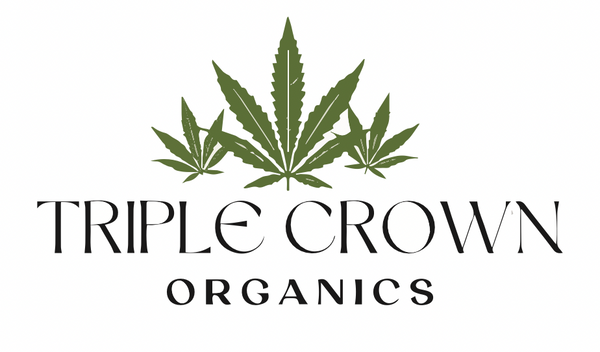
Decoding the Price Tag: Why Is CBD So Expensive?
Share
CBD, or cannabidiol, has gained worldwide popularity, and with its increasing demand, the cost of CBD products has also risen. However, there are several factors that contribute to the high price of CBD beyond just the demand. In this article, we will explore why CBD is expensive and discuss the various reasons behind its cost. Despite its present cost, when compared to other the expense of Big Pharma Rx prescription drugs, quality CBD costs may be considered relatively inexpensive. A normal 25mg/day 30 day product is generally less than $70.
What is CBD?
Before diving into the reasons why CBD is expensive, it's important to understand what CBD is. CBD is a naturally occurring chemical compound found in hemp and marijuana plants. Unlike THC, the psychoactive compound in cannabis, CBD does not cause a high. People primarily use CBD as an alternative to conventional medicine due to its potential health benefits.
With the legalization of marijuana for medicinal and recreational purposes in many states across the United States, the popularity of THC and CBD has soared. In recent years, CBD has shown promising results in treating conditions such as anxiety, pain, insomnia, and more in humans and animals. Now that we have a basic understanding of CBD let's explore the reasons behind its high price.
Related Link: Can CBD Really Help My Wellness, Sleep, Stress & Anxiety, and Pain

Reasons Why CBD is Expensive
CBD is Still a New Product
CBD and the process of manufacturing and selling CBD products are relatively new. Hemp production, from which CBD oil is extracted, was only legalized in 2018. Like any new product, the initial years on the market often come with price inflation. As the industry matures and farming and distribution processes become more streamlined, the costs are expected to decrease.
Challenges in Hemp Cultivation
Farmers are just beginning to transition to large-scale cultivation of industrial hemp, and this comes with its own set of challenges. Government regulations require close monitoring and inspection of hemp crops to ensure they do not exceed the legal limit of THC. Additionally, harvesting hemp can be challenging and requires specialized equipment, such as combines, which can be expensive. Farmers who previously cultivated crops that did not require combined harvesting may need to invest in new machinery. The drying process of hemp is time-consuming and labor-intensive, further adding to the costs associated with hemp cultivation.
Complex CBD Extraction Process
After harvesting and drying the hemp, processors must extract the cannabidiol to produce CBD oil. The extraction process is complex, expensive, and time-consuming. It requires specialized machinery and either ethanol or supercritical carbon dioxide. While ethanol extraction is cheaper, supercritical carbon dioxide extraction can produce larger quantities of high-quality CBD extract. Initially, the extraction process results in full-spectrum CBD, which contains CBD, THC, hemp seed oil, and other cannabinoids and plant compounds. To create broad-spectrum CBD without THC, additional processing and refinement are required, which adds to the costs.
Want to learn more about CBD? Learn more on our blog today.
Popularity and Demand
The increasing popularity and high demand for CBD products are major factors driving up the cost. According to Grandview Research, the global cannabidiol market is expected to grow at a CAGR of 21.2% between 2021 and 2028, from its projected value of $2.8 million in 2020. The research on the health benefits of CBD, coupled with its effectiveness in managing conditions like pain, inflammation, and anxiety, has contributed to its growing demand. The wide variety of CBD consumption styles, including gummies, oils, tinctures, topicals, and more, caters to a broad consumer group, further driving the demand for CBD products.
Limited Distribution
Despite the increasing demand, the distribution of CBD products remains small-scale. Many health and supplement stores, major retail chains, and online platforms like Amazon either refuse to sell or prohibit the sale of CBD products due to regulatory concerns or misunderstandings about CBD. The absence of CBD products from large retailers limits their widespread distribution, which can impact pricing. Additionally, restricted advertising on social media platforms and search engines forces CBD companies to allocate more resources to marketing, adding to the overall costs.
Higher Fees
CBD products entail higher fees for growers and sellers compared to many other product types. Even after four years of legalization, CBD products are subject to significant government scrutiny and inspection. Acquiring licenses for hemp cultivation and obtaining certificates of analysis for CBD products involve additional expenses and time-consuming processes.
Presence of Counterfeit Products and Unscrupulous Sellers
The presence of counterfeit CBD products and unscrupulous sellers also contributes to the high cost of CBD. Although major online retailers like Amazon prohibit the sale of CBD products on their platforms, counterfeit products can still be found. These fake products are intended to deceive buyers. As a result, sellers must regularly check their products for quality, safety, and effectiveness, which adds to their costs. Moreover, some legitimate CBD sellers take advantage of the lack of standardized pricing information and set inflated prices, profiting at the expense of consumers.
Will CBD Prices Ever Drop?
While CBD prices may seem high at present, they are likely to decrease in the future. As the industry continues to mature, manufacturers and growers will refine their processes, leading to increased efficiency and reduced costs. Additionally, as retailers better understand the holistic benefits of CBD and overcome regulatory concerns, they may start distributing CBD products on a larger scale. These factors will contribute to lower prices for CBD products. Although demand for CBD is expected to remain high, the improved manufacturing and distribution processes will prevent costs from rising further.
Related Link: CBD Oil for Back Pain: A Natural Remedy for Discomfort

Discover the Trustworthy Difference of Triple Crown Organics CBD
When it comes to premium CBD products, Triple Crown Organics stands out as a brand that is deeply invested in your well-being. Our strong commitment to regenerative agriculture and organic farming practices ensures that our CBD offerings are not only highly effective but also environmentally friendly. By focusing on soil health and employing sustainable farming methods, we produce nutrient-rich CBD products that are bursting with flavor and completely free from harmful chemicals and synthetic additives. We go beyond product quality by prioritizing fair working conditions for our employees, supporting local food systems, and making fresh and healthy CBD products accessible to everyone. Choose Triple Crown Organics for your CBD needs and experience the difference between conscious and responsible farming practices on your well-being and the well-being of the planet.
Have specific inquiries about our CBD products? Reach out to our team today for expert assistance.
Understanding the Price of CBD
CBD's expensive price tag can be attributed to various factors, including its newness, challenges in hemp cultivation and extraction, increasing popularity and demand, limited distribution, higher fees, and the presence of counterfeit products. However, as the CBD industry evolves and matures, prices are expected to decrease due to improved processes, wider distribution, and increased competition. Consumers should conduct thorough research, choose reputable sellers, and ensure they are getting high-quality CBD products that provide value for their money.
Related Link: Exploring the Relationship Between CBD and Sleepiness
